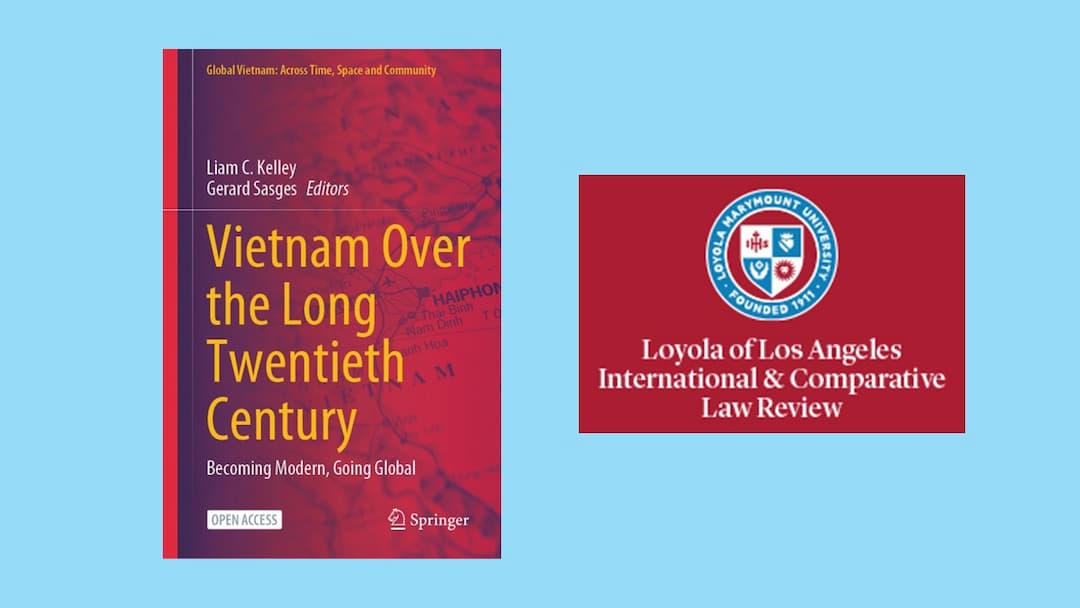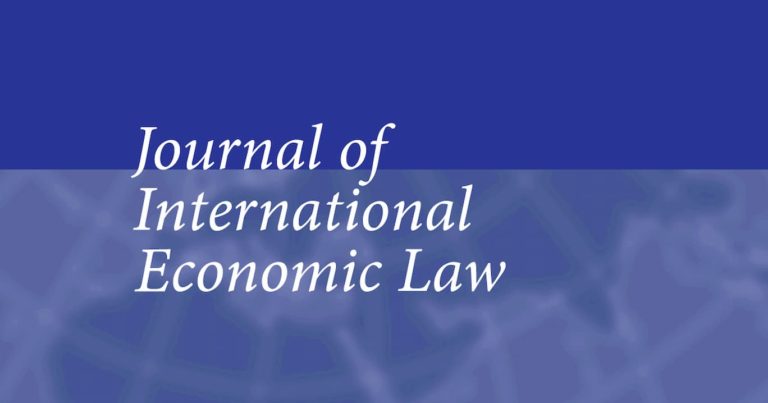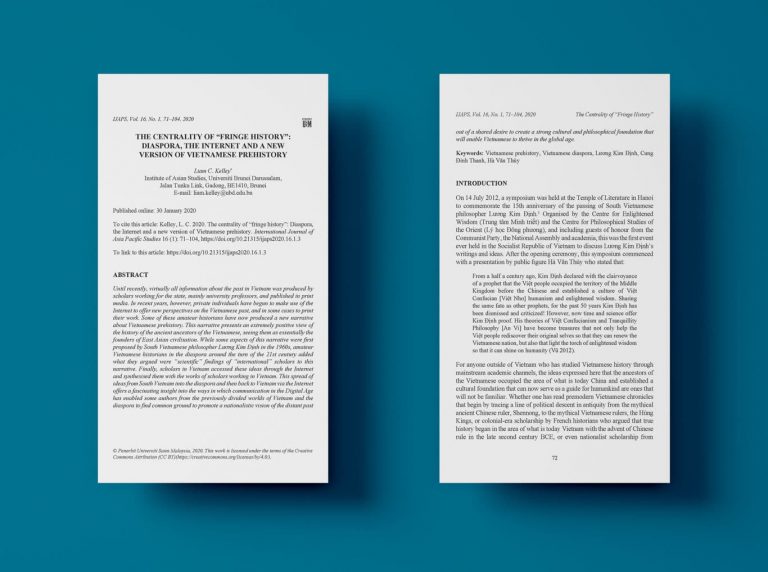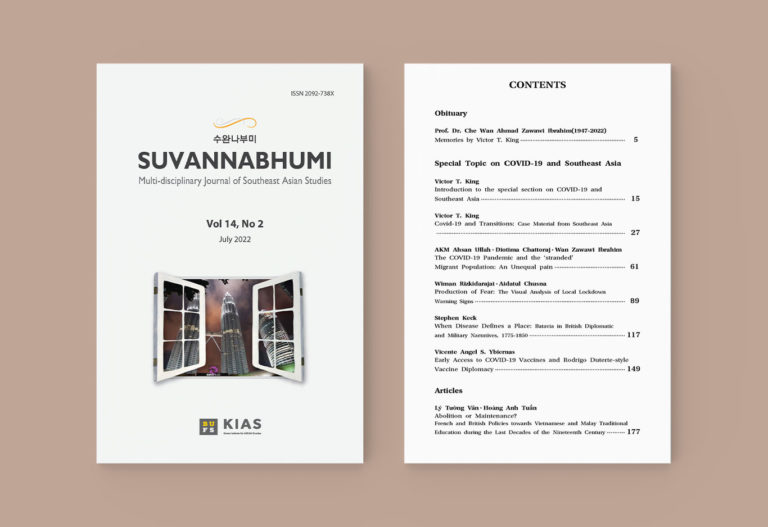Assistant Professor of the Institute of Asian Studies Dr Nobumichi Teramura recently published an open access book chapter on JICA’s Legal Technical Assistance Projects in Vietnam, Cambodia and Laos Since the 1990s in Liam C Kelly and Gerard Sasges (eds), Vietnam Over the Long Twentieth Century (Springer 2024). Dr Teramura also co-authored an open-access journal article entitled Lawyers and Non-Lawyers in International Arbitration: Discovering Diminishing Diversity in Loyola of Los Angeles International and Comparative Law Review. The abstracts of the two publications can be found below:
– Nobumichi Teramura, ‘JICA’s Legal Technical Assistance Projects in Vietnam, Cambodia and Laos since the 1990s’ in Liam Kelly and Gerard Sasges (eds), Vietnam Over the Long Twentieth Century: Becoming Modern, Going Global (Springer, 2024) 185-204
Abstract: Many have written in English about the legislative and judicial systems of Vietnam, Cambodia and Laos. Fewer English writing commentators have investigated the modern legal histories of these jurisdictions. In particular, scant attention has been paid to a common feature in their recent development, the arguably pervasive influence of Japanese private law. Since the 1990s, the Japan International Cooperation Agency (JICA) has played a major role in the modernisation of law in the region. Through its legal technical assistance projects, JICA has provided support for the reform of codes and the training of lawyers in the use of those codes. This research critically examines JICA’s contribution to the rule of law in the former French Indochina region. It considers whether Japanese soft power (as manifested by JICA) complements or is at cross-purposes with projects of other organisations and initiatives (such as Asian Development Bank (ADB) and the World Bank). It evaluates the extent to which JICA’s work is currently attuned to or might be made more responsive to the social and economic aspirations of the relevant countries.
– Luke Nottage, Nobumichi Teramura and James Tanna, ‘Lawyers and Non-Lawyers in International Arbitration: Discovering Diminishing Diversity’ (2024) 47(2) Loyola of Los Angeles International & Comparative Law Review 139-171
Abstract: This article highlights a curious lack of diversity within the proliferating discourse about the lack of diversity in international arbitration. There is hardly any awareness or at least sustained discussion about the limited diversity of professional backgrounds, and more specifically, the dominance nowadays of those with practicing lawyer positions or primary careers across the key groups and publication outlets for international arbitration. Yet this encroachment of lawyers was still being contested in the 1990s, as being linked to burgeoning costs and delays, and such “formalisation” has been re-emerging in recent years. Diversifying the world of international arbitration to involve more non-lawyers, including academics, could promote various other objectives, too, as outlined in Part I. This article, therefore, empirically analyses how lawyers have come to dominate key nodes of influence across international commercial arbitration and the overlapping, more controversial field of investor-state arbitration. Part II looks at key general associations or organizations promoting international arbitration, including their leadership and presenters at symposiums. Part III focuses on various arbitration centres globally, which actually administer cases. Part IV examines contributions to some key arbitration journals, an influential book series, and a widely-read Blog. The conclusion reiterates that restoring more non-lawyers in the world of international arbitration should help not only to reduce formalisation and inefficiencies in international arbitration, but also have various other salutary effects, including potentially improving gender diversity.





